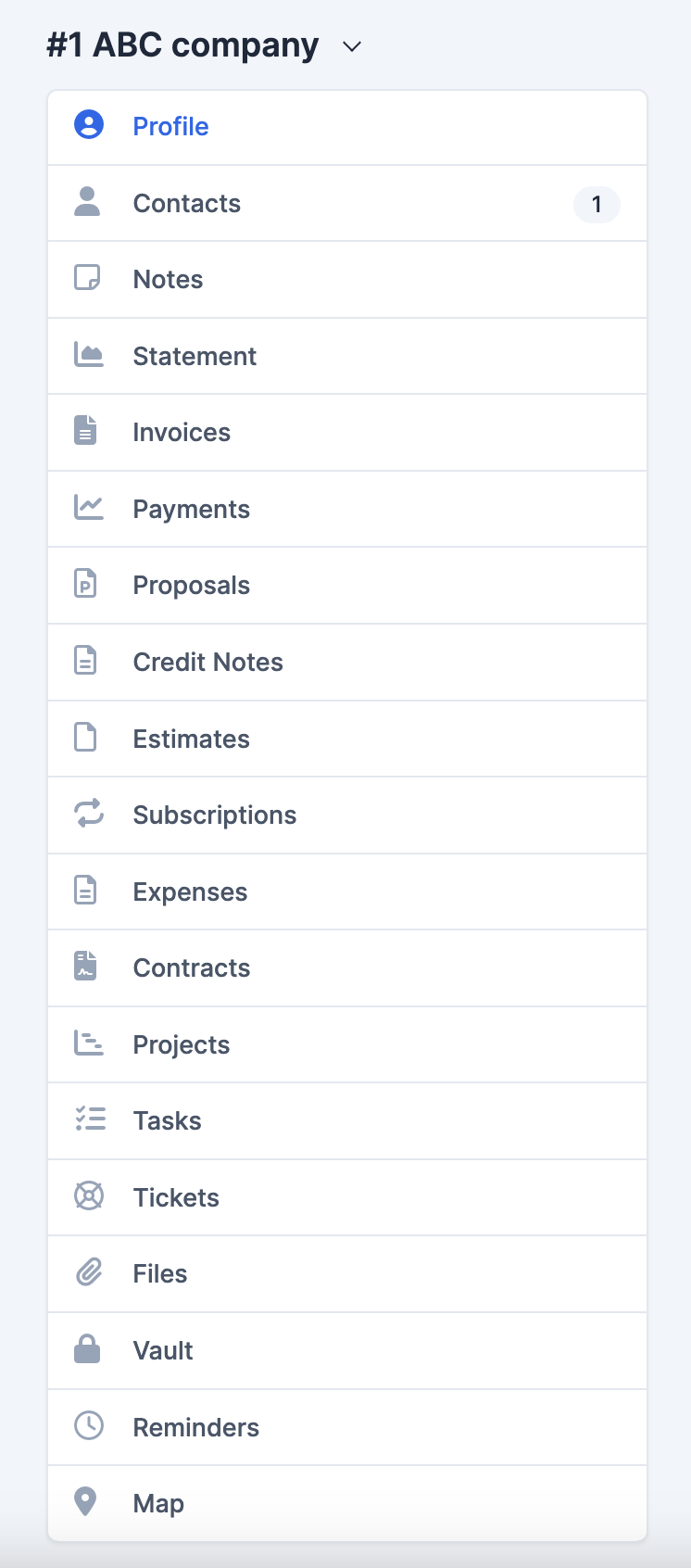This section in folloUP CRM allows you to view and manage all details related to a specific customer, identified here as demo company as ABC Company. Below is an explanation of each option available:
-
Profile:
- This section contains the main profile information of the customer, including basic details such as company name, address, and any custom fields that may have been set up.
-
Contacts:
- Displays a list of all contacts associated with this customer. It shows detailed information about each contact, including their role, email, phone number, and any recent interactions.
-
Notes:
- A space to add and view notes related to the customer. These notes can be used to record important information, reminders, or specific details about the customer.
-
Statement:
- Provides a financial summary or statement for the customer, including outstanding balances, payments, and transaction history.
-
Invoices:
- Shows a list of invoices issued to the customer, along with their statuses (e.g., paid, pending, overdue). This section helps keep track of billing history and ensures timely payments.
-
Payments:
- Displays all payments received from the customer. You can track individual payment transactions here, helping to manage account balances.
-
Proposals:
- This section stores all proposals sent to the customer. Proposals might include quotes or project outlines, allowing you to keep a record of offerings made to the customer.
-
Credit Notes:
- Contains any credit notes issued to the customer. Credit notes are adjustments to invoices, often used for returns, refunds, or discounts.
-
Estimates:
- Houses any estimates provided to the customer before formal invoicing. Estimates give the customer an idea of expected costs and project scopes.
-
Subscriptions:
- Displays any active or past subscriptions related to the customer. If your business offers subscription-based services, this section tracks the terms, start and end dates, and status.
-
Expenses:
- This section tracks any expenses recorded on behalf of the customer, such as reimbursable costs or expenditures incurred during project execution.
-
Contracts:
- Stores contracts and agreements signed with the customer. This helps in maintaining a record of terms, obligations, and conditions agreed upon.
-
Projects:
- Lists all projects undertaken with the customer. Each project entry may contain details like project timelines, tasks, and overall progress.
-
Tasks:
- Displays tasks assigned to team members related to this customer. Tasks help organize and manage customer-related work efficiently.
-
Tickets:
- Contains support tickets or issues raised by the customer. This section is useful for managing customer support requests and tracking their resolution.
-
Files:
- A storage area for documents, images, and other files related to the customer. This could include proposals, agreements, invoices, or other important documents.
-
Vault:
- The vault securely stores sensitive information, such as passwords or confidential data, associated with the customer.
-
Reminders:
- Allows you to set reminders for important events or tasks related to the customer, helping ensure timely follow-ups.
-
Map:
- Displays the location of the customer on a map based on their address. This can be helpful for planning in-person meetings or deliveries.
